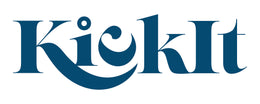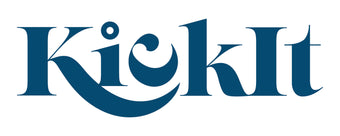Breast Cancer Awareness Month is more important than ever as new cases of cancer, particularly among younger people, are rising at an alarming rate. While awareness of breast cancer has long been a concern for women over 50, the demographics of cancer patients are changing, with an increasing number of younger women being diagnosed each year.
The Growing Trend: Early-Onset Breast Cancer
Recent studies have shown that early-onset cancers—those diagnosed in individuals under 50—are increasing globally. Specifically, breast cancer statistics show a notable uptick in cases fueled by the female hormone estrogen. This trend is concerning because younger women tend to be diagnosed with more advanced-stage tumors, which are harder to treat effectively. Additionally, certain groups, such as younger Black women, are at even higher risk, making it crucial for all women to be aware of their cancer risks and to take proactive measures.
According to BreastCancer.Org, every year, breast cancer accounts for about 30% of all new cancer cases in U.S. women, and approximately 1 in 8 women in the U.S. will develop invasive breast cancer at some point in their life. In 2025, approximately 316,950 women will be diagnosed with invasive breast cancer.
About 42,170 women will die from breast cancer in 2025. But, there is SO much hope! When caught in its earliest localized stages, the 5-year relative survival rate is 99%! Advances in early detection and treatment methods have significantly increased breast cancer survival rates in recent years. According to the National Breast Cancer Foundation, there are currently over 4 million breast cancer survivors in the United States.
Preventative Measures You Can Take
While the rise in early-onset cancer is unsettling, there are several steps you can take to know and lower your breast cancer risk factors:
- Know Your Family History: Understanding your family history of breast cancer is crucial. If you have a first-degree relative (mother, sister, or daughter) who has had breast cancer, your risk is significantly higher. Share this information with your healthcare provider, as you may need to start screenings earlier than the general population.
- Maintain a Healthy Lifestyle: Obesity, a sedentary lifestyle, and poor dietary habits have all been linked to an increased risk of breast cancer. Regular exercise, a balanced diet rich in fruits and vegetables, and maintaining a healthy weight can all contribute to lowering your chances of getting cancer.
- Limit Alcohol and Avoid Smoking: Both alcohol consumption and smoking have been linked to higher breast cancer risk. Limiting alcohol intake and avoiding smoking are important steps in cancer prevention.
- Regular Screenings: Follow the recommended guidelines for mammography screenings and other cancer screenings. The U.S. Preventive Services Task Force currently recommends that women start mammograms at age 40, but if you have a higher risk due to family history, you may need to start earlier. Regular screening tests for cancer can detect cancer early when it’s most treatable.
What to Do If You Find a Lump
Discovering a lump in your breast can be frightening, but it’s important to remember that not all lumps are cancerous. Here’s what you should do when you notice your potential first signs of breast cancer:
- Don’t Panic: While it’s natural to worry, keep in mind that many breast lumps are benign. However, it’s essential to take any new lump seriously.
- Schedule an Appointment with Your Doctor: If you find a lump, contact your healthcare provider immediately. They can conduct a clinical breast exam and determine whether further testing, such as a mammogram or biopsy, is needed.
- Follow Through with Tests: If your doctor recommends additional tests, it’s important to follow through. Early detection significantly increases the chances of successful treatment.
- Seek Support: Whether or not your lump turns out to be cancerous, having a strong support system is crucial. Don’t hesitate to reach out to friends, family, or support groups for emotional support during this time.
Moving Forward After a Diagnosis of Breast Cancer
If you are diagnosed with breast cancer, remember—you are not alone. Advances in treatment have significantly improved survival rates, and there are many resources available to help you navigate the journey.
Support can come in many forms:
-
Medical teams who tailor treatment plans to your specific needs.
-
Counseling services to help process the emotional impact.
-
Patient support groups, both local and online, where you can connect with others who understand.
-
Practical resources that make treatment and recovery more manageable.
For many, breast cancer treatment may include surgery such as a mastectomy or lumpectomy. Recovery from surgery can be challenging, and one of the most important aspects of post-operative care is managing surgical drains. Proper drain management not only supports healing but also helps prevent complications such as infections. (For more detailed tips, see our guide on surgical drain management.)
If you or someone you know is diagnosed with breast cancer and needs a mastectomy, here are some essential tips and lesser known recovery hacks.
Above all, prioritize your well-being, ask questions, and surround yourself with people who will walk alongside you every step of the way.
Breast Cancer Awareness Month 2025
This October, during Breast Cancer Awareness Month, take time to educate yourself about the risks, practice preventive measures, and stay vigilant about your health. The rising rates of cancer among younger people are a call to action for all of us.
By staying informed and proactive, you can take control of your health and reduce your risk. And if you or a loved one are facing a diagnosis, know that KickIt is here to support you with resources, encouragement, and community.
Together, we can spread awareness, encourage early detection, and stand alongside those on their journey to recovery.


